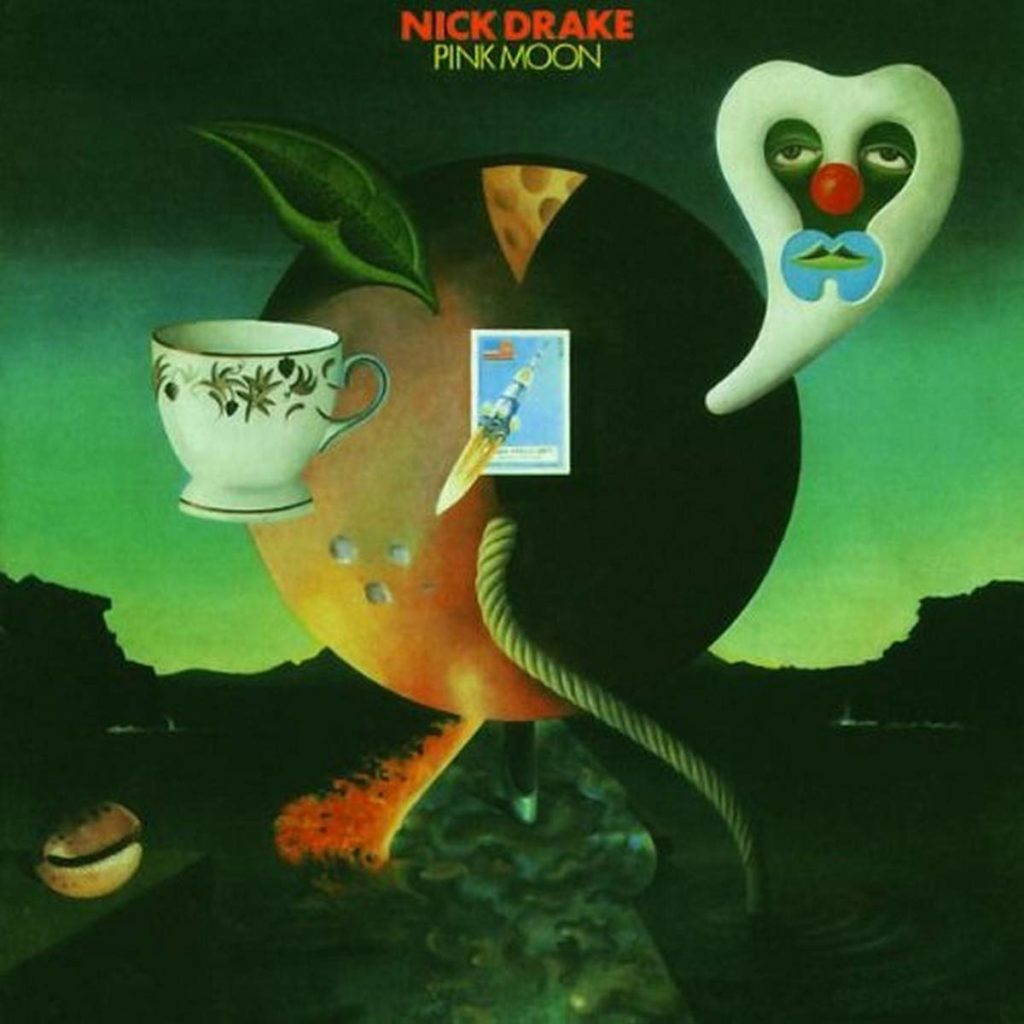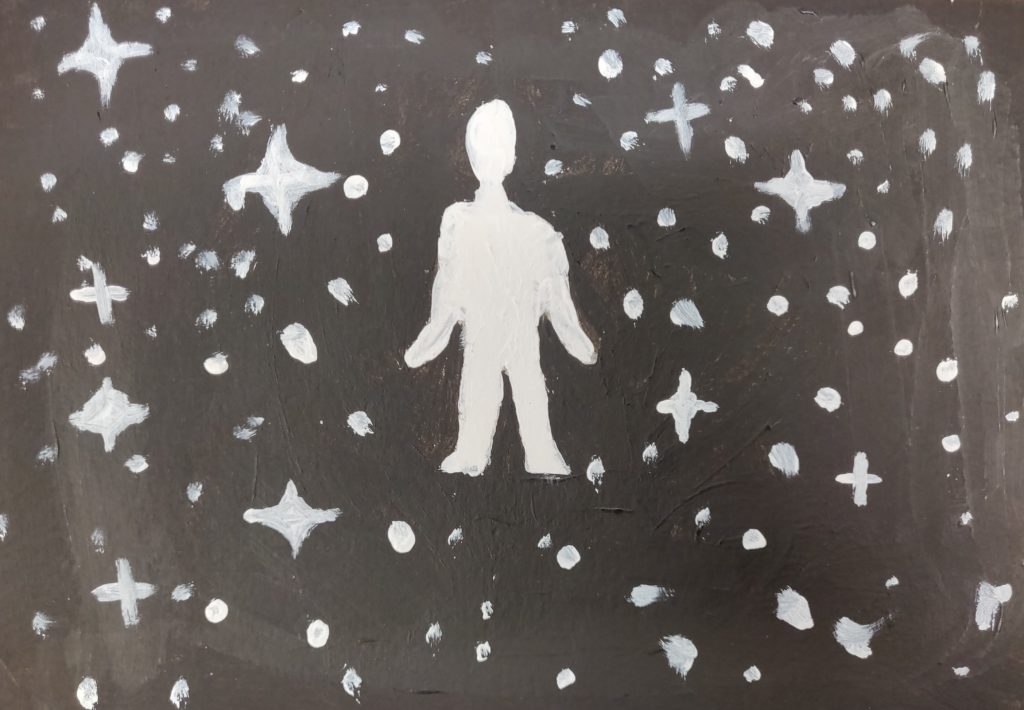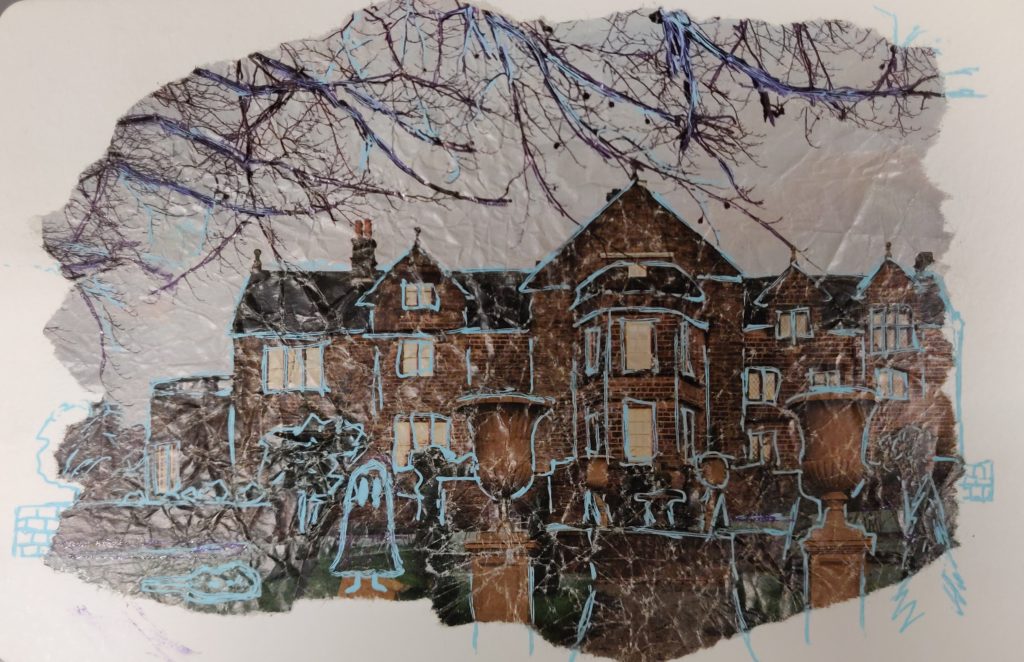The History and Popular Music of the ’70s class learned about Nick Drake’s melancholy final record from 1972. Here are some of their reactions.
Don’t listen to Pink Moon by Nick Drake while going about your everyday life–it feels incredibly bare and vulnerable in a way that gets to the listener. The context around the album directly produces this attribute–Drake recorded the whole album in two late-night sessions after isolating himself from the outside world for an extended period of time. The sparse instrumentation allows him to express his raw emotion without any distractions. His concise songs contain poetic but easily comprehensible lyrics that convey his feelings of isolation and emptiness. Despite heavy advertising from Island Records, the album did not do well commercially, causing Drake to remain virtually unknown during his brief lifetime. This lack of sales exasperated his already secluded life, retreating to live with his parents and passing away two years later. However, many years later, it became more popular among music enthusiasts for its sheer nakedness, with some considering it to be one of the best albums of the 1970s.
The minimal production on Pink Moon brings out Drake’s emotions in his voice and urges the listener to focus on his profound lyrics. Every song on the album features a single track of guitar and vocals lacking any overdubbing, except for the title track that includes one short piano solo layered on top. This stripped-down sound enhances the short, to-the-point songs, evoking a warm yet eerie feeling throughout the album. For example, “Know” features a repetitive guitar line that accompanies four short and ambiguous lines from Drake: “You know that I love you/ You know I don’t care/ You know that I see you/ You know I’m not there.” The simple guitar pushes the listener to pay close attention to the lyrics and devise their own interpretation.
The soft guitar prominent throughout the album also contributes to its bare feeling through its beautiful simplicity. The instrumental melodies add an additional layer of emotion to Drake’s lyrics, engendering a comforting yet uncanny atmosphere. The sound feels almost too tranquil and subdued. For example, the instrumental track “Horn,” features a simple and repeating guitar line that feels unstable and haunting. The melody builds off of one bass note, going between that note and several high notes. The time between each bass note and high note feels slightly different, which disorients the listener who anticipates more consistent phrasing. The emotional timbre of the notes evokes melancholy, and listening multiple times makes them sound almost like a human voice.
Drake’s lyrics use a balance of figurative and more literal language that reveals his vulnerability, contributing to a lonely and comforting sound. Since he refused to take part in interviews or live performances, he remained a mysterious figure. As a result, one may struggle to identify the specific subject of his lyrics and instead comes up with their interpretation. For example, “Place to Be” uses a series of vivid metaphors to express his feelings of love, loneliness, and depression. Many of these metaphors use themes of color and nature to get his ideas across, such as the line, “And I was strong/ Strong in the sun/ I thought I’d see when day was done/ Now I’m weaker than the palest blue/ Oh so weak in this need for you.” Drake uses the past tense in the first two lines to recount when he once felt happy, and the present tense in the second two to describe his state of dejection. His incorporation of colors allows one to think about how a pale blue drowns out the bright color of the sun, similar to how his loneliness takes over his mind. The blend of his poetic lyrics, soft guitar, and lack of any other distracting sounds create an eerie and solitary soundscape that grasps the listener, transporting their mind to a different state similar to that of Drake. – Sebastian Moreno-Comstock
I chose to paint a picture about how listening to “Know” makes me feel. As someone who struggles with depression, I could relate that part of Drake. While listening to “Know,” I felt isolated, like I was floating through space. You’ll see lots of stars to represent outer space and darkness to represent loneliness. – Malia Billingsley
Nick Drake’s third album: Pink Moon, didn’t bring the musician much fame or critical acclaim during his lifetime. However, in more recent times, a new generation of music listeners and creators have become enamored with his work. The title track was featured on the first Volkswagen commercial to appear on the internet, resulting in Nick Drake charting on the Billboard Hot 100 for the first time in 1999. Additionally, the advent of music sharing sites like Napster, heavily contributed to his rise in popularity. Pink Moon is like an island in the world of the 1970s–almost completely disconnected from the continent of popular music. Perhaps it’s this uniqueness that caused its relevance to explode rather than fade over time.
Pink Moon hides unending layers of emotion behind a façade of simplicity. For example, on the song “Know,” Drake plays his guitar repetitively and only sings four lines: “Know that I love you/ Know I don’t care/ Know that I see you/ Know I’m not there.” This is Pink Moon at its most stripped down, but it’s moments like these where the listener feels the emotion the deepest. The instrumentation is sparse; Drake brings only his guitar onto every song except for the title track, which includes piano. He sings in a hushed and even tone, which on first listen might lead one to believe that he is singing inexpressibly. However, he plays the guitar with seemingly effortless talent, which gives the tracks a rich and intimate sound. He also manages to convey intense darkness as well as a glimmer of hope within his narrow vocal range. In his lyrics too, he expresses his emotions with heart-wrenching poetry.
Drake’s lyrics are often indeterminate, but by no means meaningless. The listener can find their own meaning, or try to uncover his. Drake suffered from a serious mental illness which shaped the album, but also eventually resulted in his untimely death. But even without knowing this tragic backstory, Drake’s profound sadness can be discerned from the lyrics. On “Place To Be” Drake sings: “And I was green/ Greener than the hill/ Where flowers grew and the sun shone still/ Now I’m darker than the deepest sea/ Just hand me down/Give me a place to be.” Drake’s character is multifaceted, with ups and downs in his mental state, but as the swallow returns south every winter, so does he to inexorable sadness.
However, the candle of hope remains lit throughout the album, and shines brightest at the end of the album, on the song “From the Morning.” If one thinks of the album as Drake attempting to survive the night and its pink moon, “From the Morning” is his narrowly-won victory. During the song, he sings: “And now we rise/ And we are everywhere,” which was later immortalized on his tombstone. This line sharply contrasts the previous track, “Harvest Breed,” where he sings: “Falling fast and falling free/ This could just be the end.”
Pink Moon succeeds in combining elements of hope and dread so that one can never tell which one will win out. Drake only uses three core elements, vocals, lyrics, and guitar, but he executes each of them flawlessly. Fortunately, Pink Moon found its way to the masses, but he sadly never lived to see that day. – Jasper Selwood
I really enjoyed Pink Moon. He puts so much emotion into his songwriting and guitar. I thought the idea of him being mostly unknown as an artist while he was still alive is interesting, especially because he eventually got more listeners, but only after he died. The idea that we only know him now that he’s dead and are discovering his music kind of inspired my response. I used a photo of an old house that was crumpled looking and added him into it. He is like this ghost figure that we don’t even have any live performances of so all that we know about him are his albums. I drew him into the house like a ghost because we now know him but only him as a dead artist, not as the living Nick Drake. – Pritam Khalsa







Leave a Reply